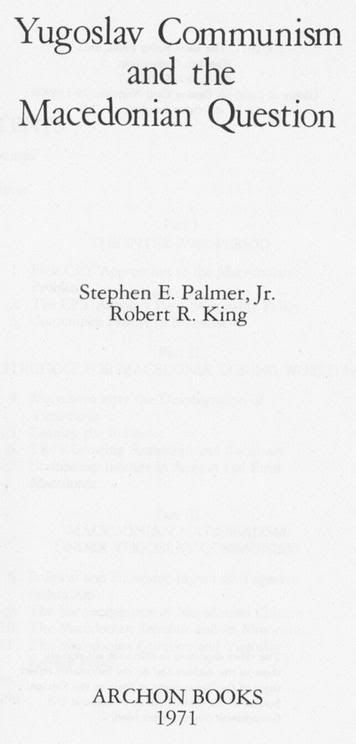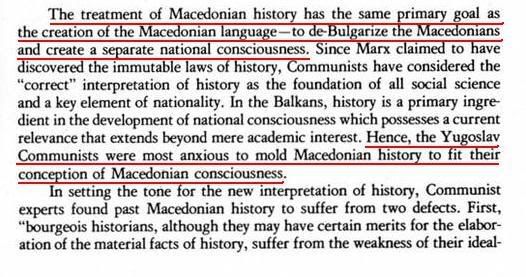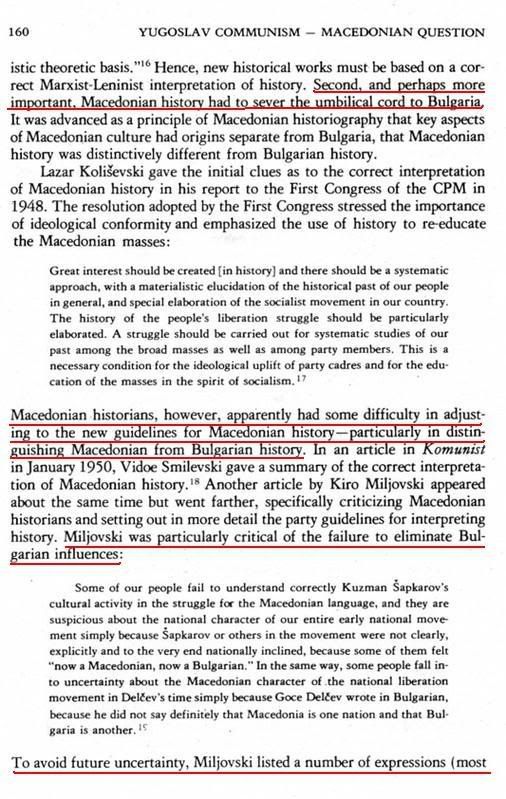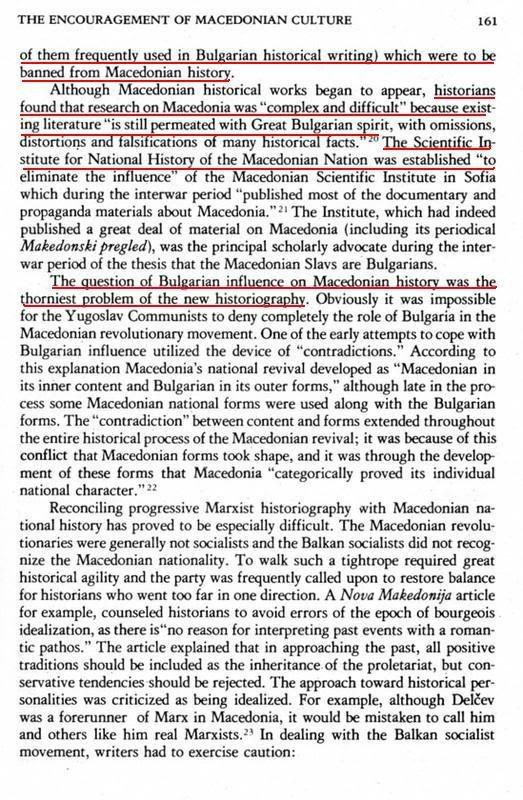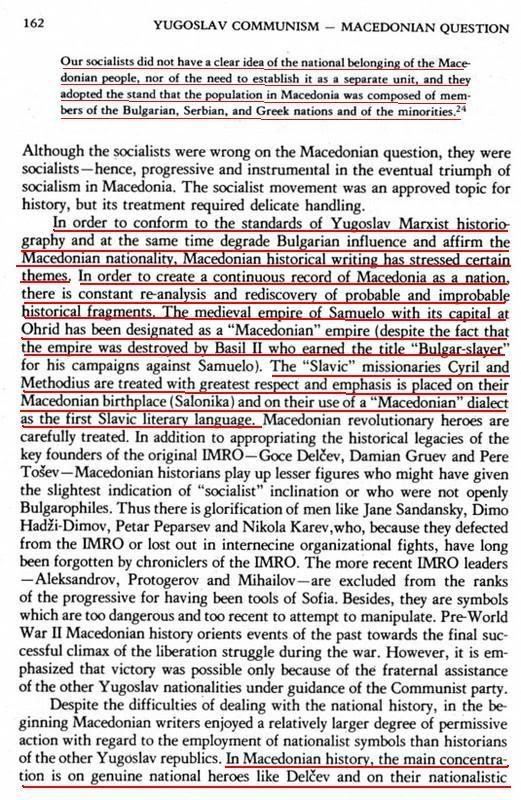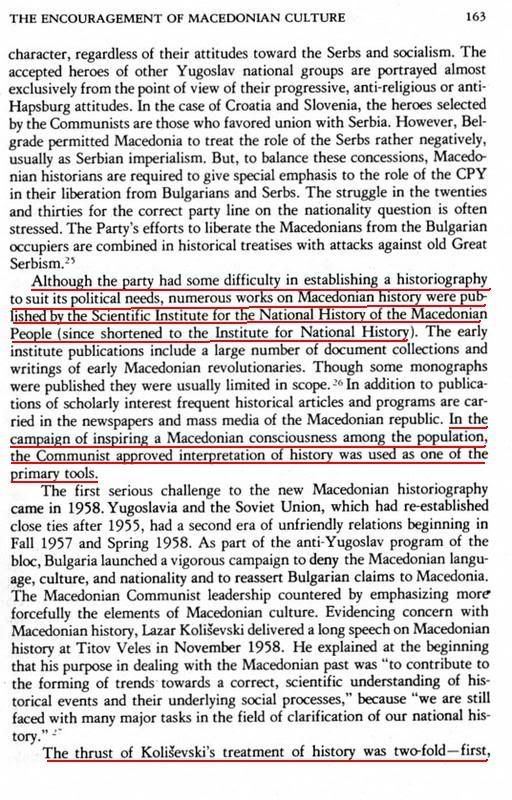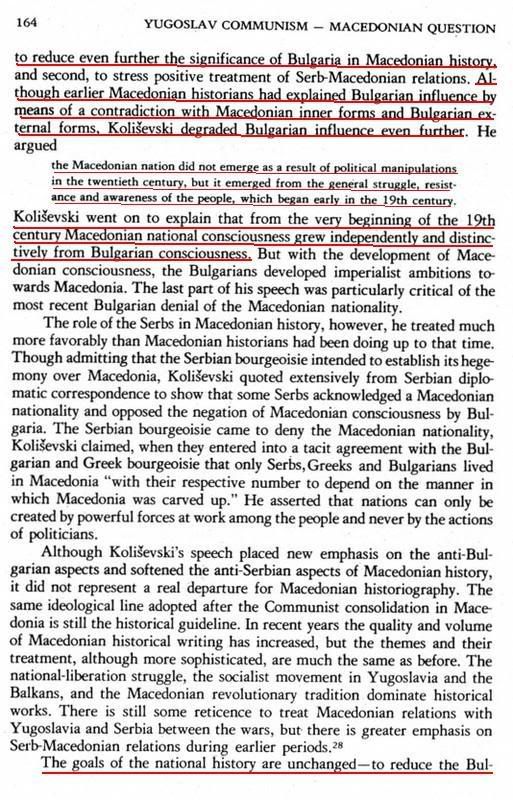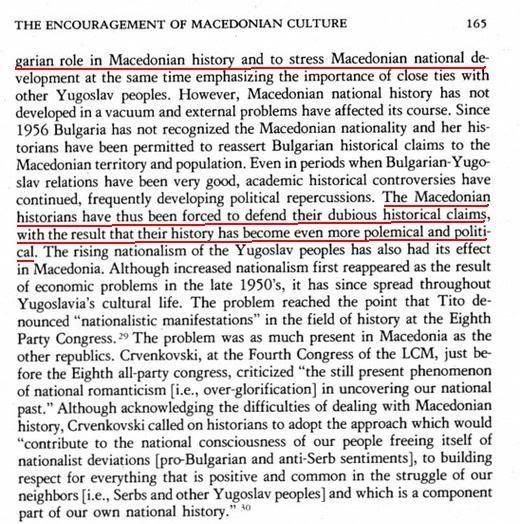Regional Stability
Stability in a country can be the result of internal or external causes which are all sociologically rooted. Whether we classify stability as political, social, or economic it undeniably contributes to a country's uninterrupted function, otherwise the country's uneven operation could lead to either political troubles, collapse of the government, or in multi-national societies it can even proceed to the country's demise. In addition to their expected contributions to the normal operation of a society, multiethnic societies have an extra burden. In a multiethnic nation good racial relations have to be maintained in order for the country to prosper. Ethnic infighting in a country increases the possibility for social, economic and political hazardous undertakings, with devastating results.
It has become a usual phenomenon for a society to be susceptible to corrupt governments, implement unrealistic economic strategies, intransigent foreign policies, domestic laws that phenomenally protect citizens. Bad laws in the name of respect and equality could be used to suppress freedoms and human dignity, which could be detrimental to the country and the region. Furthermore local, or across the board unemployment and heavy reliance of the country on foreign investments, produce foundations for domestic upheavals. Truly democratic societies produce governments that care about their people in a real sense and do anything for the welfare of their people.
Balkan countries, with the exception of Greece, have discovered that although under communist rule doctrinal education was essential in the survival of a regime, albeit the gap between theory and practice was great, in a democratic society it is the only practice. As former communist countries attempt to reconcile their societies' gradual transcendence to democracy it is evident that their understanding of how democracy works is absent. The majority of the citizens in the former communist countries of the Balkans are content with their undeniable right to vote, while some of their governments care to offer more democratic institutions than just voting. However, successive governments of the FYROM are very concerned that with real democracy the spirit of Macedonism would be a thing of the past bringing such social instability that no government would be able to withstand. Macedonism is the concept that keeps the Slavs together. Without it, not only the country will lose the Albanian inhabited lands, but also it will create havoc to its inhabitants seeking their identity, thus destabilizing the region.
For Greece, stability in the Balkans is of paramount consideration. But stability in the region cannot be achieved, unless all Balkan countries cooperate to accomplish it. When one of the region’s countries promotes violence in a row of absolute nationalism, advocating an identity, which one could argue, is the result of euphoric recalls considering that in the last century their alleged identity changed four times, then the results of such activities can only be negative. The education in history of the Slavic children of the FYROM does just that, it has brought the most unproductive nationalism into its youth.
Slavic Nationalism
The probability of instability in the FYROM because of the name issue is very real, albeit the government in Skopje purposely ignores the root of the potential domestic social instability, with evident political and economic consequences. Feeding ethnic tensions against the Albanian nationalism could have dire consequences taking into account that Albanians are about 35% of the FYROM's population. As if the internal problems are not enough, Skopje exports domestic genetic engineering and homemade cultural anthropology to its neighboring countries, "Macedonizing" anyone and anything that could be used by their propaganda machine in their effort to build a past that never was. Glosses scientifically proven Greek, pertaining to Macedonia have been re-invented as part of a vocabulary of an ancient “Macedonian” language that by the admission of FYROM’s former Prime Minister Lubco Georgievski never existed, adding that there is no connection between the ancient Macedonian dialect to the modern language of the FYROM. Instead of addressing the issue with seriousness and responsibility, Skopje domestically perpetuates the plague in a gradual but steady upgraded degree, while externally it plays the victim card in an attempt to gain international sympathy and support, rallying uninformed individuals and political sympathizers to their corner.
Given the fact that the Slavic population of the FYROM has changed its national identity four times during the 20th century, wavering from Bulgarian to Serbian to Bulgarian to "Macedonian," the insistence of Skopje not to give up its "Macedonian" identity feeds increasingly Athens' suspicions that Skopje's end goal is the eventual claim of all Macedonian territories (Greece, Bulgaria, and Albania). For more than 18 years Skopje has done all possible to maintain its "Macedonian" identity and increasingly forces the issue through speeches or deeds of its governments, blaming Greece for all the ills of the FYROM society, as if it is a spoiled child in a tantrum.
The federalization of the FYROM is eminent and the dissolution of that country could be close, unless the Slavs come to terms as to who they actually are, leaving away wishful thinking. Skopjan nationalism increased as the years passed resulting of the encouragement they received from NATO and EU countries which were disinterested in Greece's rights, promoting interests or sensitivities of their own agendas. Greece's veto was a rude awakening not only to Skopje, but also to all those behind the scheme. Sociological maturity is normally a matter of time and although the shock of the veto could wake the Slavs up bringing them closer to reality, it practically made them increasingly negative, attacking Greece in any way possible. At the end, Skopje attributes its instability to Greece instead of its own revanchist, nationalistic, irredentist, and expansionistic education. Greece's national interests counter the FYROM's plans, and that is why Greece has to do what it has to do to protect, if not its rights, at least protect its interests.
Nation and Nationality
The system of narod (nation), narodnost (nationality), and malčinstvo (minority) worked during Tito's leadership. The Yugoslav Communist League accredited Tito with the liberation of the country and the defeat of Draža Mihajlović's "fascist" forces, giving a dictator credit which he did not deserve. Due to the communist fascination on promoting minority rights in order to keep groups separate in the name of "brotherhood and unity," communist policies emphasized, rather than downplayed, ethnic consciousness.
The communist party of Yugoslavia gave a new meaning to words nation and nationality which was interesting and complex. In a simplistic way, any of the six constituent peoples of Yugoslavia i.e. Serbs, Croats, Slovenes, Montenegrins, "Macedonians" and Muslims constituted narod or nation. If the mother country of a people of a certain ethnic group, regardless of their population size was outside the borders of Yugoslavia, that group was considered narodnost or nationality. Under this definition, Albanians being more numerous that the "Macedonians" within SFRJ, they were a nationality, but the Slavs of Skopje were a nation. Based on the above logic Skopje became the center, the mother "country of all "Macedonians," having the inherent right to demand union with all Macedonian lands under Skopje's leadership.
The Albanian Factor
Albanian nationalism has exacerbated an already inflamed situation in the region. Albanian diaspora enlisted all possible means and took advantage of every opportunity they could to make a point that no government would be able to push them around. This kind of thinking goes back to the former Yugoslavia, as a result of Tito's internal policies explained above, who played ethnicities against each other, granting specific rights and increasing autonomies to minorities to ensure the state's slogan, "brotherhood and unity." In fact the system had long-term effects of enmity of perceived weak ethic groups toward alleged privileged ones.
Albanians claim territories from Montenegro (Malesia), the FYROM (Ilirida), Greece Tsameria, and they have arguably achieved independence for Kosovo bringing the unity of their lands in agreement with their national goal. Due to Albania's defunct system it is expected that its neighboring territories will be more advanced if they will achieve either direct independence or union with the neighboring Albanian inhabited lands before achieving independence. Since Kosovo is considered independent, next in line will be Ilirida which will be achieved through federation with the Slavic part of the FYROM in a couple of years from now.
Given the fact that Albanians form about 35% of the population in the FYROM they resent the name malčinstvo or minority, pinned by the Slav government of Skopje. The rise of Albanian nationalism found an unprecedented appeal among young Albanians who went far into ancient history in order to consolidate their roots to something more concrete than new rootless ethnocentric nationalism with expansionistic tendencies. Albanian nationalists content that their ancestors are Deukalion and Pyrrha, parents of Hellen, Illyrus, etc. appropriating even ancient Macedonian History, declaring Myrtale a.k.a. Olympias, Philip and Alexander the Great as their own.
Despite the fact that Albanian consanguinity and direct lineage to the ancient Illyrians is greatly questionable, lacking archeological evidence. Albanians believe in their Illyrian ancestry. The fact that the ancient Illyrian language belonged to the centum branch of the Indo-European group of families, while modem Albanian belongs to the satem branch without any linguistic or archeological evidence, connecting the two languages, it is absolutely inconsequential to young Albanians. Great grammatical differences exist between the two Indo-European branches while absence of archeological data and linguistic continuity deprives linguists’ scientific arguments which would connect even remotely the languages of the FYROM Slavic to the ancient Macedonian. The difference is the same between Modern Albanian and ancient Illyrian providing both groups ground only to speculations, assumptions, and hypotheses driven to the extreme by imagination, wishful thinking, and definitely megalomania.
Thus the FYROM is inhabited mainly by two peoples ethnocentrically nationalistic and expansionistic who due to falsified education, both claim same or related ancestry, whilst speaking satem languages versus the centum of their imagined ancestry and additionally a Slavic government fueling its own nationalism, antagonizing the Albanian administration which is fueled by political patrons who hope they will benefit from the result.
Greece’s Right to Veto.
One could assess that this whole situation against the neighboring state it is not Skopje's fault altogether, but Greece's partisan irrationality and political inconsistency. Had consecutive Greek governments checked Skopje's moves from the beginning and had Greece established a sound national policy, remaining consistent in her policy towards Skopje, Greece would not have found herself in the diplomatic quagmire that she is in today. Greek politicians having as their first priority their self-indulgence, second their political party's interest and Greece's benefits in the backburner, they created an inconsistent stage on which various actors played their role as they wished with Greece being the only spectator, watching Skopje pulling the strings, setting the agenda and imposing its terms. One should add that Skopje's efforts are indirectly funded by EU and the Greek taxpayer. For a nation that keeps stating that it has no claims on Bulgarian or Greek Macedonian territories, it spends a lot of time, effort and definitely Greek money to consolidate what it is not theirs, the epithet Macedonian. It appears that Skopje waits for the right moment to legally deprive the epithet Macedonian from its neighbors, especially the Greeks, exercising the inherent by that time right, to anything Macedonian.
According to the FYROM and its friends, Greece did not have the right to veto FYROM’s membership to NATO and the EU because of the Interim Agreement that both countries signed in 1995. Nevertheless, the government of The FYROM has already chosen its country’s own fate. Looking back to the FYROM’s behavior we realize that right from the very beginning there were continuous actions of rejecting their provisional name. The FYROM and its friends did anything possible not only to maintain the name “Republic of Macedonia,” but also spread it through half-truths and schemes, demanding recognition under that name from any who wanted to do business with Skopje. In October 2007 the President of the FYROM declared from the podium of the UN that the name of his country is “Macedonia” renouncing the provisional name and denouncing any country that calls it The FYROM. The official websites of their government do the same. These are indicators that the FYROM has abolished its right to expect to join any organization under the name The FYROM when it suits its agenda and interests. The FYROM and their friends must understand that their name is either “Republic of Macedonia” staying out of any organization, or it is “The FYROM,” receiving membership. The rejection of the name “The FYROM” by its own president, not only meant an official rejection of the provisional name that his country joined the UN, but also the violation of Article 11 of the Interim Agreement which refers to the UNSC resolution 817 of 1993 that "this State [The FYROM] being provisionally referred to for all purposes within the United Nations as ‘former Yugoslav Republic of Macedonia’ pending settlement of the difference that has arisen over the name of the State." The expression “within the UN” has much broader meaning than the building of the UN. It means the institution for whatever it stands, consequently all organizations, countries, etc., including treaties, conventions, protocols, correspondence, and activities connected with the UN which includes recognitions of countries, alliances, etc.
Regarding the argument that the FYROM’s stability is in danger, all people, countries and organizations concerned should be talking to the FYROM, not to Greece because it is up to the FYROM government to correct the problem. Nevertheless, the day that the "Republic of Macedonia" signed the military co-operation agreement with the US recently, the agreement vacated any danger and possibility of destabilization of the country and the region. The United States by guaranteeing the FYROM's survival and security has vacated all danger phobia and fear mongering surrounding Greece’s veto, which means that Greece does not have to rush to solve a problem that Skopje should have taken care of by changing their faulty education. Its rationale, under which all of Skopje’s friends pressure Greece, does not exist anymore. Another fact that nobody can refute is that both the FYROM government, the schismatic FYROM Church and their diaspora declared very openly their strategic goal; making Thessaloniki their Capital. What country would be suicidal to accept such open aggression supporting and accepting Skopje as an ally?
Although it has already succeeded in its external goals due to Athens' consistent diplomatic ineptness, low-tone policies, and political indolence, Skopje has conscripted its diaspora and employs three (thus far) Public Relations firms to accentuate its so-called victimization. Athens did not complain about Skopje's perpetual violation of articles 7 and 11 of the Interim Agreement, unless the Greeks of the diaspora alerted the Greek press. But the path Greece chose seems very strange to all those with simple common sense. In their eagerness to satisfy persons in charge of Greece’s foreign policy, i.e. foreign interests, successive Greek governments from 1991, followed an accommodating bargaining strategy, while they disregarded the Greek people’s sentiment on the Macedonia name issue. Furthermore, exerting overconfidence for the success of their positions and believing that the solution was near, they did not bother to prepare the Greek public for a long delay. Greece set low expectations in the negotiations with Skopje and that is why the result of these negotiations will be negative for Greece and positive for Skopje. Greece should have set high standards, so that it would have space to maneuver; now it has no place to go. The chart below demonstrates what the political establishment of Greece has done to the country.
 Conclusion
ConclusionThe reality of Kosovo’s independence and the new reality in the Balkans nurture danger for the territorial integrity of the FYROM, since the Albanians of that country will be called one day to test their loyalty to the State. Which state they will choose is very clear.
Questions being raised include, but not limited to ‘what is it going to happen to the FYROM’s Slavic areas?’
‘Which country or countries will fill the void?’
Are the Slavs preparing the ground to claim Greek Macedonia?’ ‘If so, why is Greece assisting their claim by offering a compromise which means offering the name Macedonia?’
These politically destabilizing factors, along with high unemployment, corruption, heavy dependence on foreign investment, an education founded on baseless megalomania creates greater instability. If the FYROM needs a lie to exist, its existence is redundant!
source: panmacedonian
